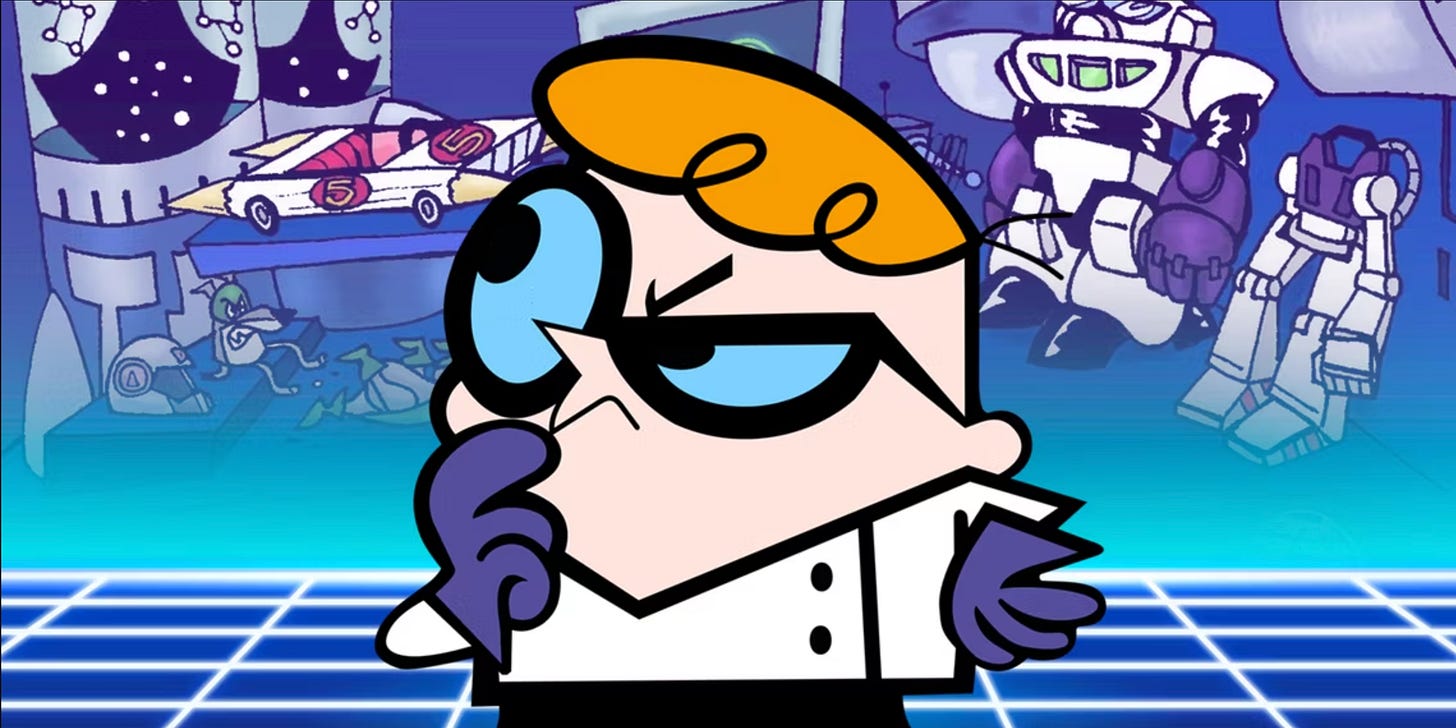Dexter's Guide to Decision-Making
Lessons learned from an eight-year-old genius
The days before my thirtieth birthday felt like the countdown to a challenging exam. Amidst the dilemma of how to celebrate the milestone occasion, stress and discomfort dominated. What should I do? Who should I spend the day with? What do I even want to do? Several calls from my mom asking about my plans ended with no clear answer.
The same questions arose in my head on a previous occasion when I decided to take a vacation. What should I do? Who should I spend my time with? What do I even want to do?
Whenever I have to make a decision, my prefrontal cortex takes the central stage, meticulously analyzing each option with the seriousness of a judge giving a ruling. The striatum chimes in with its assessment, assigning value to each option based on my past experiences, while my amygdala adds its two cents, injecting a dose of emotion into the mix. And like a conductor, dopamine modulates my neural activity. But instead of arriving at a decision that feels like a perfect blend of reason and intuition, I get to a 404 Page Not Found error.
My decision-making abilities are defective.
As an adult, I have to make hundreds of decisions a day, so I needed a guide to help me develop a sound decision-making system that minimizes the innate need for external validation.
My chosen mentor is the enthusiastic boy genius Dexter from Dexter’s Laboratory.
This elementary school kid is bold, creative, and confident in his decisions.
Once, to reclaim his stolen invention, Dexter ingeniously crafted the Dyna-Mole, a robotic mole capable of tunneling through the ground with precision and speed. In another audacious move, he ventured into the future to meet his older selves, devising a remarkable time machine that defied the constraints of time and space. On another occasion, Dexter really showed his smarts when he earned Hero status by deploying a colossal robot to safeguard his city from a rampaging monster. However, perhaps the most remarkable display of confidence was Dexter's decision to keep his laboratory a secret from his family.
So, what characteristics does Dexter possess that allow him to make decisions without waiting for a green light from anyone else?
These are five things I’ve learned from the eight-year-old:
Have reliance on your intellect and creativity: Dexter frequently relies on his intellect and creativity to solve problems and make decisions, often disregarding input or advice from others, including his sister Dee Dee. For instance, in one episode, Dexter invents a machine to enhance his brainpower, showcasing his belief in his own intellectual abilities. Despite Dee Dee's skepticism, he trusts his creative approach to solve complex puzzles and overcome obstacles.
Cultivate outcome-driven decision-making: Dexter's unwavering confidence in his capabilities frequently results in successful outcomes. Throughout the series, Dexter approaches challenges with a clear focus on achieving specific goals. When faced with a problem, Dexter doesn't just consider potential solutions; he actively pursues strategies that are most likely to deliver the desired result.
Balance self-trust with openness to feedback: Dexter’s single-mindedness can occasionally blind him to alternative perspectives or more effective approaches to solving problems. Nevertheless, he shows humility when his experiments fail or face setbacks by accepting feedback from Dee Dee or other characters. This reminds me of the importance of balancing self-assurance with humility.
Be willing to take risks: Thanks to his confidence in his own judgment, Dexter is willing to take risks and pursue ambitious goals, even in the face of skepticism or opposition from others. For example, when he embarks on a risky venture to explore the ocean's depths in a homemade submarine (emphasis on "homemade"!). That determination to follow a mission, even if it is considered crazy, is enviable (and perhaps a little dangerous).
Think beyond the lab coat: During a power outage, instead of feeling defeated or relying on conventional forms of entertainment, Dexter harnesses his creativity to invent a new game. Turning a mundane situation into an opportunity for innovation and fun, he repurposes household items and creates an intricate maze throughout his laboratory, complete with obstacles and puzzles. Dexter then navigates the maze, challenging himself to complete it within a certain time frame. I’m currently trying to identify the moments I should break free from conventional thinking and explore new options. Creativity, innovation, and unconventional approaches to problem-solving are skills I want to boost.
Not long ago, I contemplated whether pursuing a Master’s Degree was the right path for me. The questions What should I do? Who should I listen to? and What do I even want to do? played in my head like a carousel going round and round, leaving me feeling uncertain. Some weeks, the idea of obtaining a master’s degree seemed like a wise decision, while other weeks, it struck me as bonkers to consider spending two years of my life solely studying. I couldn’t decide, and my opinion shifted depending on the perspective of those around me.
I needed a reliable decision-making system to guide me.
Now, upon reflection, considering desired outcomes, evaluating my current abilities, and exploring unconventional career paths, I realized that a Master’s Degree wouldn’t align with my long-term goals and aspirations in life. Dexter helped me get to that epiphany.
Decision-making is inherently linked to problem-solving, and Dexter is aware of this. He identifies problems, evaluates possible solutions, and constantly makes decisions based on them.
What really stuck with me from Dexter is that decision-making is a skill, and every skill can be honed and improved with practice. Still, I wish it were taught in school, career-advancing courses, or seminars. Since it isn’t popular in those spaces, I’ve had to learn it from a cartoon.
The young inventor approaches decision-making with a sense of playfulness and curiosity, often turning mundane tasks into exciting adventures. In contrast, I used to approach decisions with a seriousness that borders on anxiety. Now, I have this Dexter-esque mindset to remind me to inject a sense of fun and spontaneity into the process.
–Catalina





happy birthday and oooooh is this new branding
also most of me is deedee going oooooh what does THIS button do???
This is really fun. Playfulness and curiosity absolutely need more of a place in our headspace, especially with respect to decision making as you've described. But also, in essays! Like you've done here.